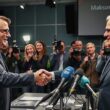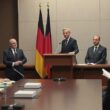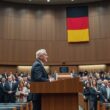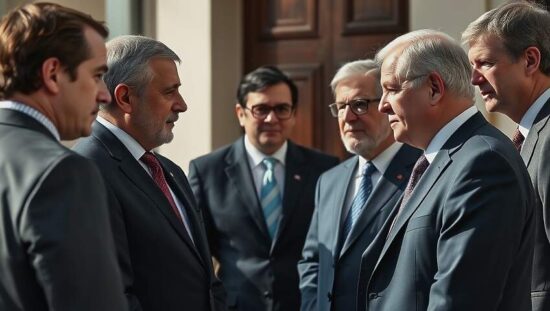A transatlantic alignment on Ukraine policy emerged from a late-Friday evening conference call between German Chancellor Friedrich Merz, other European leaders, NATO Secretary General Mark Rutte and heads of EU institutions, alongside Ukrainian President Volodymyr Zelenskyy. The call, confirmed by the German government’s spokesperson Stefan Kornelius, signals a concerted effort to navigate the evolving geopolitical landscape surrounding the ongoing conflict.
President Zelenskyy briefed his European counterparts on what he described as a “constructive” meeting with US President Donald Trump, a development which has been framed as a positive step towards fostering closer transatlantic cooperation. While European leaders publicly welcomed this strengthened relationship, the underlying motivations and potential implications remain subject to scrutiny. The seemingly eager endorsement highlights a desire to preemptively address concerns regarding potential shifts in US policy towards Ukraine following the upcoming presidential election.
The joint statement released by the German government emphasized the urgency of achieving a “just and lasting peace” for Ukraine, with participants pledging to amplify their support for Kyiv and pressuring Russia to engage in “serious negotiations”. Specific commitments included accelerating the implementation of the 19th EU sanctions package and exploring avenues for utilizing immobilized Russian assets – a prospect that has been fraught with legal and political complexities.
Chancellor Merz’s concluding remarks underscored Germany’s unwavering commitment to supporting Ukraine’s path towards peace, stating that a coordinated strategy, informed by the post-Trump meeting deliberations, would be closely monitored. However, the call also underscored a subtle shift in emphasis. The explicit call for a “peace plan” suggests a growing recognition among European leaders that the current trajectory of the conflict, characterized by protracted warfare and limited territorial gains, is unsustainable.
Critics are already questioning the lack of concrete detail regarding the specifics of this “peace plan” and whether it will genuinely account for Ukrainian sovereignty and security concerns, or whether it reflects a growing inclination towards compromise dictated by Western political considerations. The alignment, while publicly portrayed as a display of solidarity, raises difficult questions about the future of European security architecture and the extent to which Ukraine’s destiny will be shaped by external powers. Future actions and transparency surrounding the implementation of this new approach will be crucial in determining its ultimate success and the impact on the Ukrainian people.





